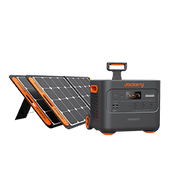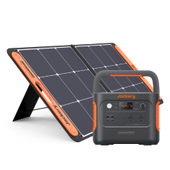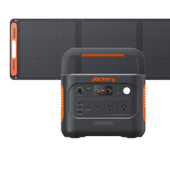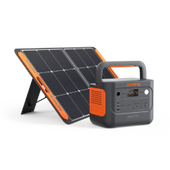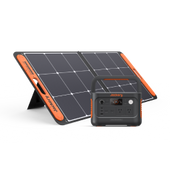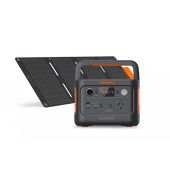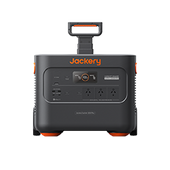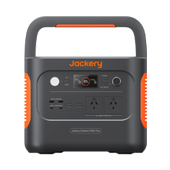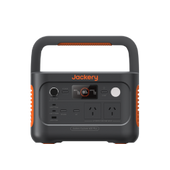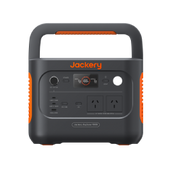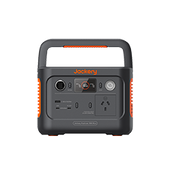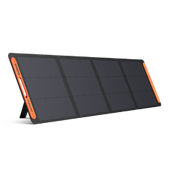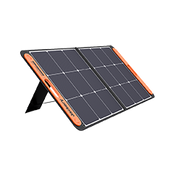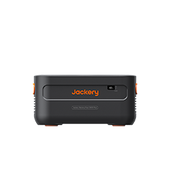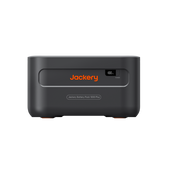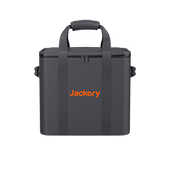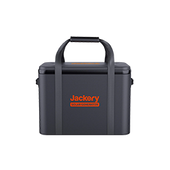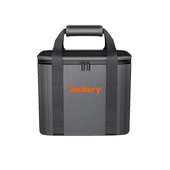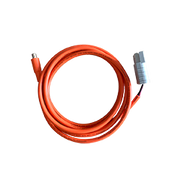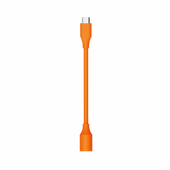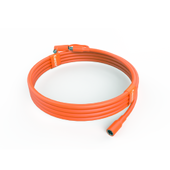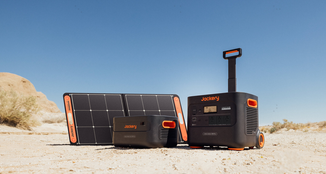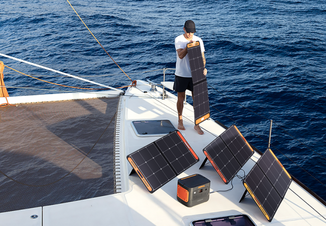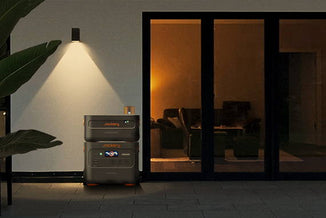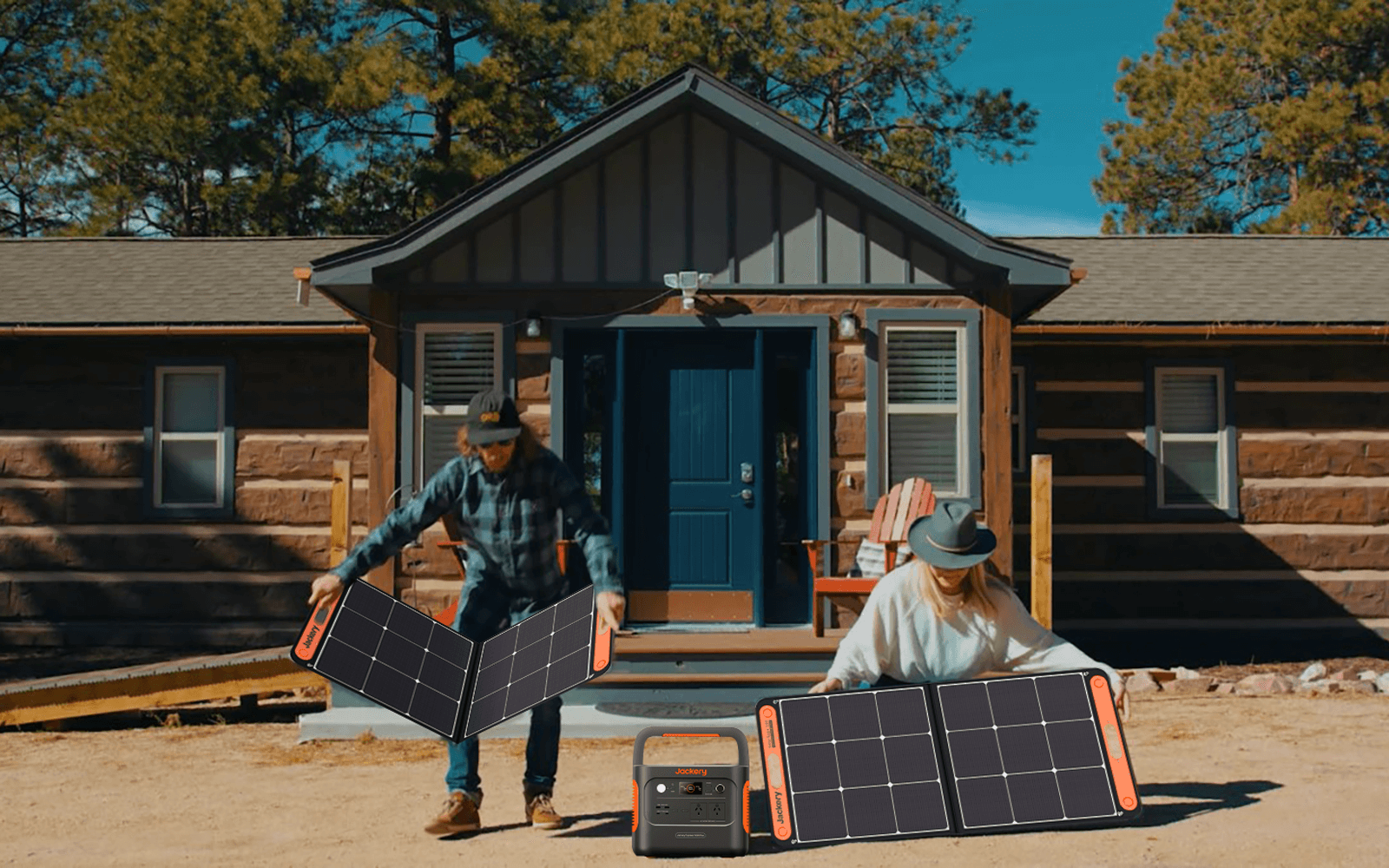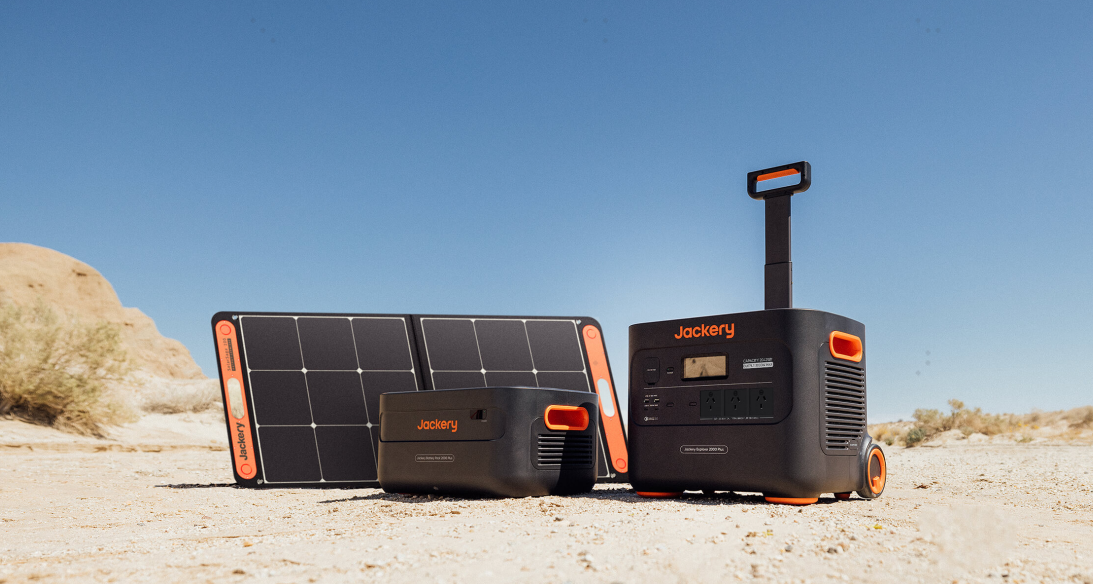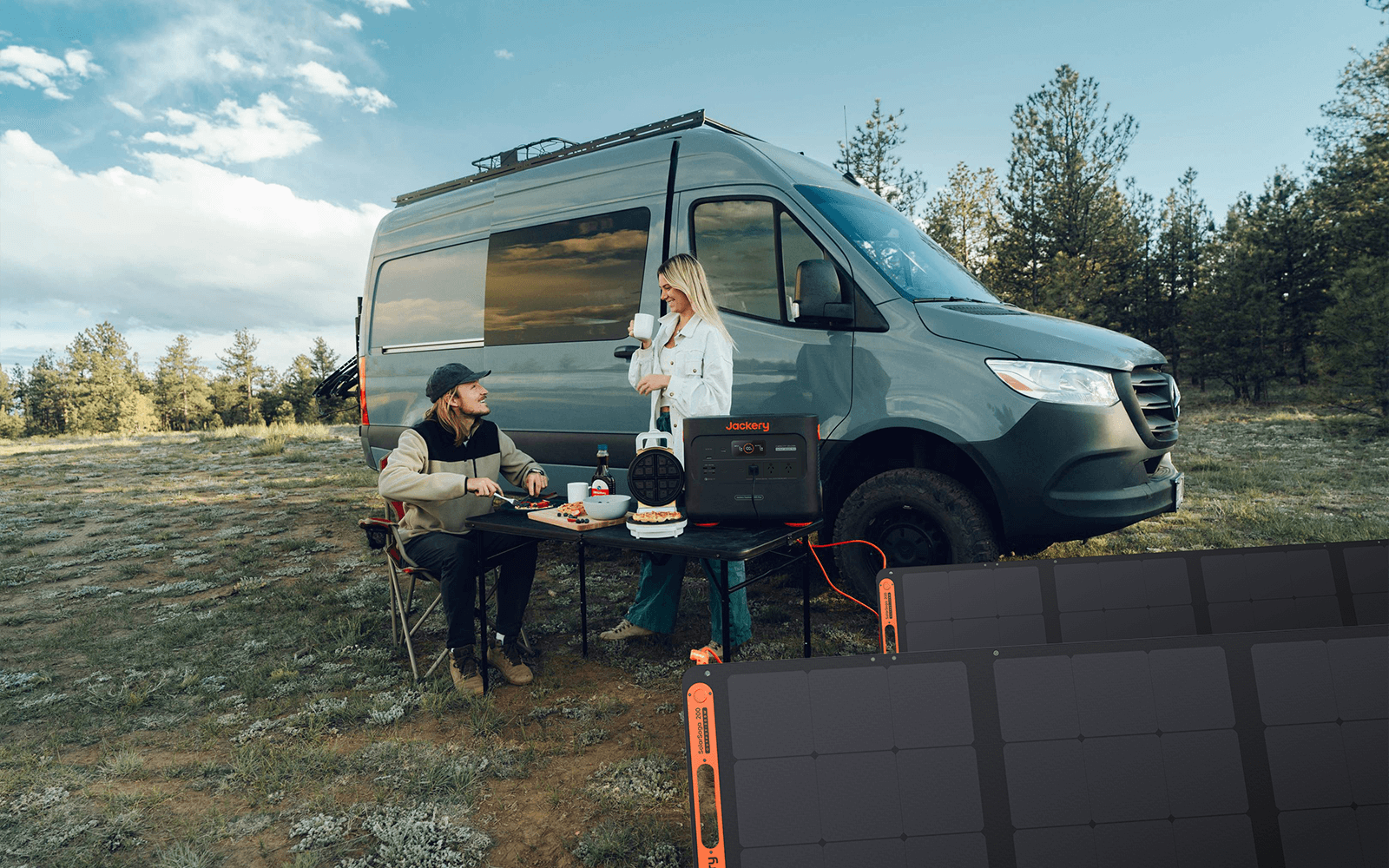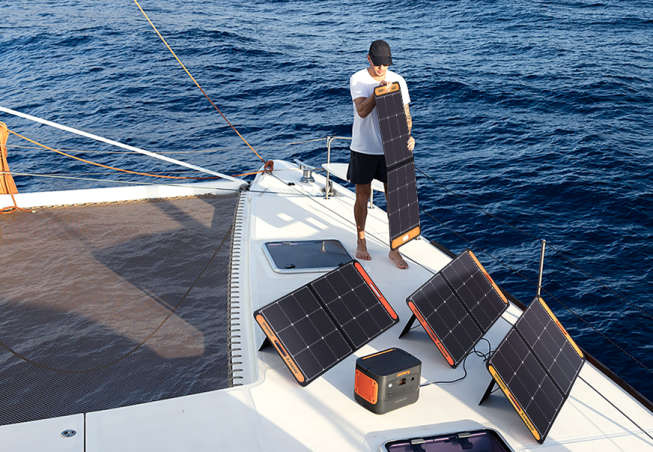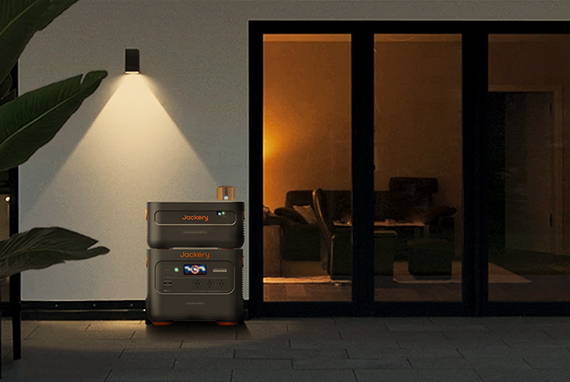In Australia, with its vast geographical size and diverse climate, a dependable backup power source is indispensable. Unforeseen power outages resulting from floods, cyclones, and severe weather conditions can plunge both households and businesses into darkness without warning. This underscores the significance of backup power as a vital support system during emergencies, guaranteeing the uninterrupted operation of essential services, particularly in the realm of healthcare.
As the overall world shifts towards more sustainable energy solutions, the interest in renewable energy has also surged in Australia. One brand leading the charge in this green revolution is Jackery, offering innovative solar generators that harness the power of the sun. This post will compare them with traditional backup systems and highlight why they are a better choice.
Understanding Traditional Backup Systems
Before the emergence of solar generators, the most common backup energy sources were gasoline or diesel generators. Let's dive deep into the mechanisms of these traditional backup systems:
1. Explanation of Traditional Backup Systems
Traditional backup systems, such as gasoline or diesel generators, use internal combustion engines to convert the energy of gasoline or diesel fuel into electricity. Generally, they have two types: portable or fixed, providing reliable and immediate power sources in case of emergencies. That means as long as your fuel is enough, power outages won't happen for a long time.
Although diesel or gasoline generators have high power generation efficiency, they also have some drawbacks, such as environmental impact and high maintenance costs. Furthermore, they are not budget-friendly when considering the fuel prices. It may add burden to your bank if you use them as full-time power sources.
2. Pros and Cons of Traditional Backup Systems
Like every other technical equipment, traditional backup systems also have their own sets of pros and cons. These can help you decide whether they are a fine fit for your needs. Here are some primary overviews:
Now, let's explore the pros of traditional backup systems:
- Instant Power: Capable of producing large amounts of electricity on demand.
- Reliability: Offers consistent power, irrespective of weather conditions.
- High-Wattage Appliances: Practical for running appliances with high energy consumption.
- User-Friendly: Generally easy to operate and set up.
- Cost-to-Efficiency: Often has a better cost-to-efficiency ratio than some alternative power sources.
It's also essential to weigh the potential cons of traditional backup systems:
- Environmental Impact: Emits toxic fumes or pollutants and is not as environmentally friendly as renewable energy sources.
- Noise: Their loud noise may cause disturbances, especially in quiet areas. It may be prohibited in certain noise-sensitive areas such as schools and hospitals.
- Maintenance: Requires regular upkeep and potential repair costs.
- Fuel Dependency: Relies on gasoline or diesel, leading to ongoing fuel costs.
3. Typical Usage Scenarios in Australian Households and Businesses
In the Australian context, traditional generators have been a mainstay for backup power.
In 2020, a large-scale power outage in Western Australia affected over 100,000 households, highlighting the importance of backup power sources for households.[1] Traditional power generators are also helpful in charging small appliances like mobiles and laptops during any unexpected power outages. The existence of these backup solutions ensures that many people's work is not interrupted by sudden power outages.
Commercial operations also require an uninterrupted power supply. For example, some medical devices in hospitals require a stable power supply to avoid delays in patient treatment due to power outages. Smooth and continuous operation of IT systems is mandatory to ensure data safety and security. Research shows that when a power failure interrupts an IT system, one-third of companies lose $18,500 to $465000 per accident. [2]
Introduction to Solar Generators
In recent years, the concept of harnessing the sun's energy has evolved from rooftop solar panels to more portable and versatile solutions, including
solar generators. The following is an introduction to solar generators and how they work.
1. Explanation of Solar Generators and their Work Principle
Solar generators typically consist of solar panels, charging controllers, battery packs, and inverters. It captures sunlight through solar panels, converting the sunlight into electricity and storing it in a battery for later use. Unlike traditional generators that rely on gasoline or diesel, solar ones do not require fuel costs and are more environmentally friendly.
2. Benefits of Solar Generators
They offer a plethora of benefits, especially when it comes to environmental conservation.
- Environmentally Friendly: Compared to the environmental pollution and noise pollution caused by diesel generators due to emissions, solar generators can play a crucial role in reducing carbon emissions, in line with global efforts to address climate change.
- Silent Operation: Unlike noisy traditional generators, solar generators operate silently, ensuring no noise pollution.
- Cost-Efficient: One of the significant advantages of solar generators is that they do not have fuel costs, reflecting their long-term economic advantages.
- Low Maintenance Requirement: Diesel generators usually require regular maintenance, while solar power solutions can keep running for years without the need for any significant maintenance.
3. Growing Adoption of Solar Generators in Australia
Australia's favourable geographical location has led to a notable increase in the adoption of eco-friendly power solutions, primarily driven by the abundant sunlight available across the country. This shift is not solely a consequence of the declining costs associated with renewable energy but also mirrors the growing aspiration among Australians to attain energy self-sufficiency.
With a continued emphasis on sustainability, solar generators are poised to assume a progressively pivotal position in Australia's energy sector, contributing to the nation's commitment to a greener and more sustainable energy landscape.
Comparing Key Factors: Solar Generators vs. Traditional Backup Systems
People often talk about whether solar generators or usual backup systems are better for backup power. Both are good in some ways. The following section may give you some advice.
Choosing environmentally friendly solar generators is particularly important for responding to global sustainable development initiatives. Traditional generators, especially the ones that use diesel or petrol, release harmful gases such as carbon or sulphur dioxide. These gases will cause acid rain or global warming, making them not friendly to nature.
Using solar generators does not generate a carbon footprint and is the primary choice for environmentally friendly living.
2. Dependence on Fuel Availability during Emergencies
Traditional backup systems are heavily reliant on fuel, making them susceptible to the risk of fuel shortages during emergencies or extended power outages. In contrast, solar generators capitalize on the energy of the sun, eliminating the need for fuel dependency.
This characteristic renders them a more dependable choice, particularly in regions abundant with sunlight, like Australia, where they offer a sustainable power source even during prolonged periods of electrical disruption.
3. Maintenance Requirements and Costs
Conventional generators necessitate frequent maintenance, such as oil changes, filter replacements, and potential repairs, which not only contribute to additional expenses but also require a significant investment of time and effort.
In contrast, solar generators boast a simpler design with fewer moving components, resulting in minimal maintenance requirements. This characteristic not only reduces the long-term operational costs but also facilitates a hassle-free and low-maintenance power solution for users.
4. Noise Levels and Community Considerations
Noise pollution is an important concern when choosing generators. Continuous noise from diesel generators can seriously disrupt the surrounding environment and even trigger conflicts. In contrast, solar generators operate silently, ensuring no noise disturbances. This makes them a preferred choice for locations where tranquillity is valued.
Advantages of Solar Generators in the Australian Context
As the world turns to more sustainable energy solutions, solar generators have emerged as a frontrunner in the renewable energy race. Let's delve into the advantages of these generators in the Australian context.
1. Reduced Reliance on Fossil Fuels and Grid Power
Compared to the use of easily depleted and harmful fossil fuels, opting for
solar generator Australia as a backup power option can significantly aid Australians in preserving the environment. Moreover, considering the unreliability of grid power, particularly in remote regions of Australia, the introduction of solar generators offers a dependable, sustainable, and eco-friendly energy alternative, thereby minimizing the occurrence of sudden power outages.
2. Availability of Sunlight and its Impact on Solar Generation
Australia has ample sunshine, with an average of 2200 to 3200 sunshine hours per year.[3] East Coast cities receive sunlight almost all year round, making them prime locations for solar installations. The natural advantage positions Australia as a global leader in solar energy generation.
The long-term financial benefits of
solar powered generators are undeniable. With rising electricity prices and the unpredictability of fossil fuel costs, solar generators offer a fixed and predictable energy cost. Moreover, various government incentives and rebates available for installing solar systems in Australia effectively help to offset the initial setup costs associated with installing solar generators.
Recommend Jackery Solar Generator as Backup Battery
Jackery is an experienced and creative brand in the new energy market, and the following are products that have won widespread market applause.
1. Jackery Solar Generator 500
The Jackery Solar Generator 500 is a compact and powerful solar solution tailored for outdoor enthusiasts. Combining the Jackery Explorer 500 Portable Power Station with a Jackery SolarSaga 100W Solar Panel, this generator offers a seamless blend of portability and performance. 1) Compact Design with Robust Features
The Jackery Solar Generator 500 is only the size of a basketball, but it can provide sufficient and stable pure sine wave power supply for various mainstream products, catering to various devices from TVs and desktops to small appliances. Its design ensures that devices rated under 500 watts can be powered efficiently.
2) High-Efficiency Solar Panel
The Jackery SolarSaga 100W Solar Panel complements the Jackery Explorer 500 Portable Power Station perfectly. With a conversion efficiency of up to 23.7%, it ensures rapid and efficient charging. Lightweight and foldable, the solar panel is easy to transport. 3) Multiple Charging Methods
The Jackery Solar Generator 500 offers multiple charging options. It can be fully recharged through one Jackery SolarSaga 100W Solar Panel in 9.5 hours and can also be charged via an AC adapter or a car outlet in 7.5 hours. This versatility ensures you have power wherever you are.
2. Jackery Solar Generator 1000 Pro
The Jackery Solar Generator 1000 Pro is a powerful and efficient solar generator designed for those who need reliable power on the go. With a capacity of 1002Wh and an output power of 1000W, this solar generator is a robust solution for various power needs. Here are some of its primary features:
One of the standout features of the Jackery Solar Generator 1000 Pro is its rapid charging capability. When you plug it into an AC Adapter, it gets fully charged in only 1.8 hours. The generator is designed with convenience in mind, featuring a foldable handle to ensure easy transportation and storage.
Safety is paramount for the Jackery Solar Generator 1000 Pro. It employs a pure sine wave inverter to deliver stable power. Additionally, its integrated battery management system (BMS) monitors and safeguards battery operation.
4) Multiple Ports for Various Devices
This solar generator has multiple ports to cater to various devices. It features 2 USB-C and 2 100W PD ports, making it ideal for charging phones, iPads, laptops, and drones. Additionally, it has 5 AC output ports, 2 USB A ports, and a DC car port, ensuring you can power multiple devices simultaneously.
5) Longevity and Warranty
The Jackery Solar Generator 1000 Pro has up to 10 years of service life. Its low self-discharge rate allows it to maintain power for 365 days when at 80% capacity. Furthermore, purchasing generators from our official website can gain a warranty period of up to 5 years.
3. Jackery Solar Generator 2000 Pro
The
Jackery Solar Generator 2000 Pro is the pinnacle of portable power solutions, offering an impressive 2160Wh capacity. It is designed for those who require substantial power without compromising on portability.
1) Colossal Charging Capacity
With a whopping 2,160Wh capacity, the Jackery Solar Generator 2000 Pro is great for powering many things, from big appliances like refrigerators and ovens to smaller ones like microwaves.
2) Ultra-Fast Solar Charging
The Jackery Solar Generator 2000 Pro can be fully charged with six Jackery SolarSaga 100W solar panels in 5.5 hours. And if you're near a power source, it can be charged in a mere 2 hours via an AC wall outlet. This rapid recharging capability ensures you have power when you need it most.
The Jackery Solar Generator 2000 Pro is equipped with two dual battery protection chips and four temperature core detectors to ensure the safe charging of the product.
4) Designed for the Outdoors
The Jackery Explorer 2000 Pro Portable Power Station only weighs 19.5 kg and has a foldable handle, making it perfect for outdoor adventures, such as camping, RV travels, and other trips. Moreover, it is strong enough to handle heat and tough outdoor conditions, making you travel worry-free.
The Jackery Explorer 2000 Pro Portable Power Station features heat dissipation and high-temperature protection, and the solar panels boast IP67 waterproof, making it easy to adapt to various outdoor environments.
Jackery stands at the forefront of sustainable energy solutions, consistently pushing the boundaries of innovation and reliability. Committed to quality, we have offered products that seamlessly blend portability with performance.
Every Jackery product, from the compact Jackery Solar Generator 500 to the robust Jackery Solar Generator 2000 Pro, speaks volumes about our dedication to environmental responsibility and customer satisfaction. As we move towards a greener future, Jackery emerges as a beacon of hope, promising not just products but a lifestyle change.
Best-selling Jackery Solar Generator






